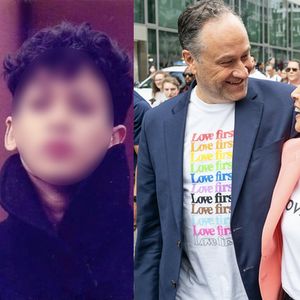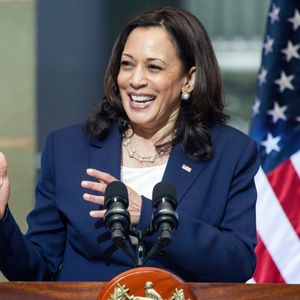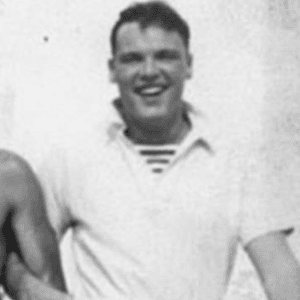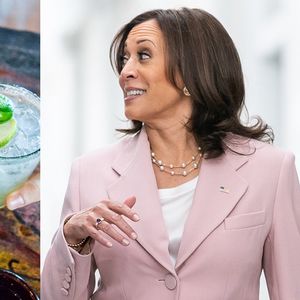Bradley Manning was an Army intelligence specialist who was awarded several medals including the Iraq Campaign Medal and the Global War on Terrorism Service Medal. On March 6, the queer soldier, who has identified as both gay and transgender, was even listed among those nominated for the 2012 Nobel Peace Prize.
But he has been held in detention since his arrest May 26, 2010 in Baghdad, Iraq, charged with espionage.
Manning's detention, nine months of which was in solitary confinement where he was often kept naked, always denied a pillow and blanket and kept in a lit cell, was categorized as torture, and a violation of the Geneva Convention by Amnesty International, Human Rights Watch and other international human rights organizations. In April 2011, 295 legal scholars in the U.S. sent an open letter to the Obama Administration's Department of Justice in support of Manning, protesting his treatment and solitary confinement. Also in April 2011, the United Nations denounced the Obama Administration's treatment of Manning.
Daniel Ellsberg, a former Pentagon military analyst who was not tried for the release of the Pentagon Papers to the New York Times and 17 other newspapers during the Nixon Administration, petitioned for Manning's release at his preliminary hearing in February 2012. Ellsberg called Manning heroic.
Last week Manning pled guilty to 10 of the 22 counts against him, in what some have asserted was a forced confession after he'd been worn down by his treatment. Manning refused to plead guilty to "aiding and abetting the enemy," a charge that carries a life sentence. (Initial discussion of the death penalty was dropped.)
The Army intends to prosecute the remaining charges at a trial in June 2013 and to call its full roster of witnesses against Manning. He is expected to spend at least another 20 years in prison, although the judge has discretion in sentencing.
Manning was accused of releasing more than 750,000 documents of various levels of governmental classification through WikiLeaks. The reason Manning has given for releasing the documents to WikiLeaks (which has never revealed who they received the documents from) were a protest against the "don't ask, don't tell" policy that was still in force at the time of Manning's deployment, that Manning felt the U.S. was focused on "killing and capturing people" and that Manning started to believe he was "actively involved in something I was completely against."
Manning also wrote that he hoped that his release of the documents would result in "worldwide discussion, debates and reforms." If not, then Manning feared "we're doomed as a species."
The released documents definitely prompted discussion and debate, including over whether Manning's actions were heroic or treasonous.
Many of the leaked documents have been published by the New York Times, Washington Post, the Guardian and der Spiegel among others. Legal scholars and others, including the editorial page editors of various newspapers, have credited the documents with revealing vital information to the American people about U.S. involvement in torture, the status of prisoners at Guantanamo, atrocities committed in both Iraq and Afghanistan (including the now-infamous "Collateral Murder" incident against journalists and civilians in 2007) and drone attacks on civilians. The documents were also deemed pivotal to fomenting the Arab Spring.
What many legal scholars have questioned as Manning approaches the end of his third year in detention is why he was charged under the Espionage Act at all--a rarity in American jurisprudence. President Obama has revived the Espionage Act and has prosecuted more people under it than every other president combined since the 1917 law was enacted. Among those prosecuted by Obama was John Kiriakou, the former CIA agent who exposed water-boarding and other "enhanced interrogation" techniques.
President Obama, who pledged as a candidate to protect whistle blowers because they were both courageous and patriotic, has cracked down hard on whistle blowers. Manning in particular has suffered under Obama's enforcement; he has been treated more like the enemy combatants in Guantanamo than an American citizen and soldier.
Manning has been denied many elements of due process throughout his detention and preparation for trial. During the period of solitary confinement even Red Cross International, which petitioned to check on his well-being, was denied access to him, as were several Democratic members of Congress who asked to see him. The documents related to his trial have been kept secret, even though they should be a matter of public record. Manning has been described as depressed and for a significant period of time was on suicide watch.
Except for the Nobel Peace Prize nomination, Manning seems to be a forgotten American hero. Ellsberg has long been lauded for his courage in releasing the papers that lead to the end of the Vietnam War and even 40 years ago at the height of that war, was not charged with espionage or any other crime.
Obama has long cited dissidents from other countries for their courage, yet Manning, who as a soldier felt tormented by the realization of what the U.S. was perpetrating in both Iraq and Afghanistan, is now himself a prisoner of conscience-and of Obama. Why? Because he decided that the world needed to know what he knew about both wars. Because he blew the whistle on the government, creating a transparency that Obama promised as a candidate, but has reneged on as president.
In recent weeks President Obama has pardoned a series of men and women convicted of drug offenses. Why not pardon Bradley Manning, who isn't a drug dealer but a bona fide hero?
Many presidents have pardoned persons who committed treasonous or seditious acts. James Buchanan pardoned Brigham Young who fomented the Utah War. Millard Fillmore pardoned Daniel Drayton and Edward Sayres who were convicted in the Pearl Incident for transporting slaves to freedom. James Polk pardoned John C. Fremont, who had been convicted by court martial for mutiny. Martin Van Buren pardoned William Mackenzie who was convicted of violating American neutrality laws. Thomas Jefferson pardoned David Brown, convicted of sedition under the Sedition Act of 1798. Both George Washington and John Adams pardoned a series of men convicted of treason during the Whisky Rebellion. George H.W.Bush pardoned Myra Soble who had been convicted of treason in the Rosenberg spy case. Jimmy Carter pardoned all those who evaded the draft during the Vietnam War-thousands of men.
Precedent is there. So why not pardon Manning? Why not recognize that Manning did a service for his country--not just by his military service, but by alerting the American people to the lines the government had crossed in both Iraq and Afghanistan and the lies that had been told to the nation.
Candidate Obama would have pardoned Manning, because Candidate Obama recognized and repeatedly stated the importance of having gutsy, brave, heroic men and women who would risk everything for truth, justice and American democracy.
Why can't President Obama be like Candidate Obama and take a similar risk? Abraham Lincoln, whom Obama invokes often, pardoned nearly 300 Dakota Indians who attacked white settlers during the Great Sioux Uprising in 1862. Think that was a popular move during the Civil War?
Much is made of soldiers who make the "ultimate sacrifice" for their country. Hasn't Bradley Manning-queer soldier, whistle blower, prisoner of conscience-made the ultimate sacrifice for his country? Hasn't he put his life completely on the line to protect American democracy?
Manning should be honored for his heroism in the face of the grim arbitrariness of war. He should win the Nobel Peace Prize and he should win his freedom from the president who promised to honor whistle blowers and to value queer Americans. Bradley Manning has given up his life-at 25-for truth, justice and American democracy. We are lucky to have him. Why don't we understand how much? We don't we set him free?
VICTORIA A. BROWNWORTH is an award-winning journalist and writer. Her most recent book is From Where We Sit: Black Writers Write Black Youth, winner of the 2011 Moonbeam Award for fiction. She last wrote about Bradley Manning here in 2012.



















































































